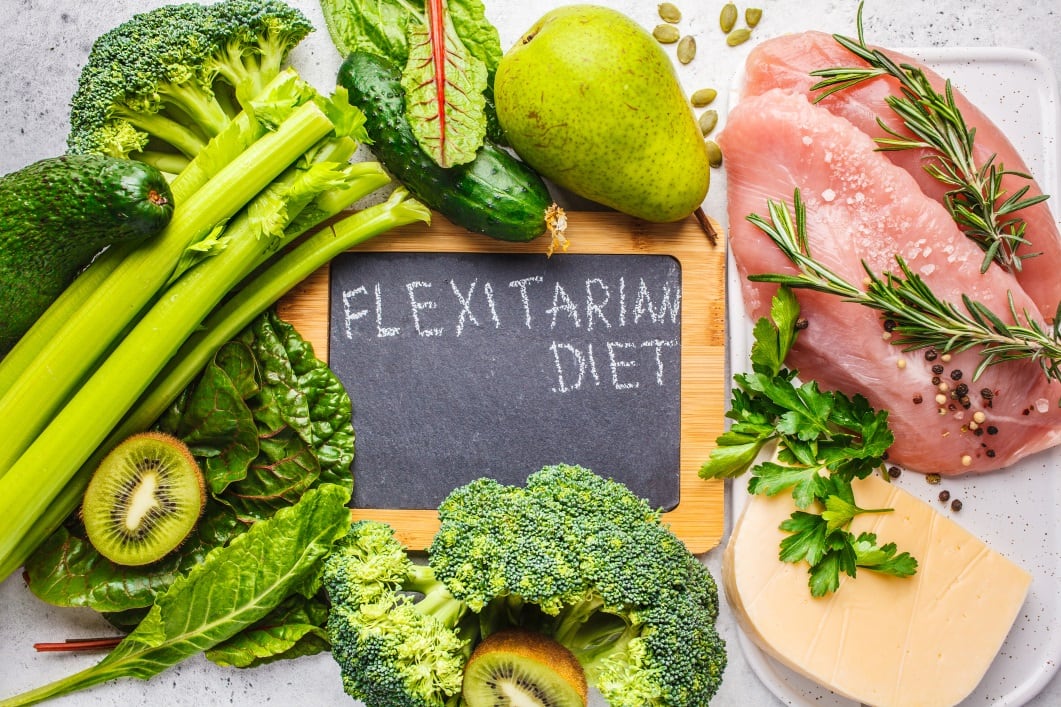Hybrid meat products, whereby a portion of meat is replaced with plant-based ingredients, have been slowly making their way to market.
In the UK, the trend has largely been led by supermarket retailers, with Waitrose leading the charge in recent years. Sainsbury’s, Tesco, and most recently M&S, have also incorporated hybrid meat products into the own-label lines.
Elsewhere in Europe, Austrian start-up Rebel Meat is also tapping into the hybrid trend. The young company sells its Rebel Meat Burger – made from 50% beef and 50% plant-based ingredients – into foodservice and retail.
But what do consumers really think about hybrid meat products? Do they perceive them to be healthier than their conventional meat counterpart? An EIT-funded project, led by Dr Simona Grasso, a senior research fellow at the University of Reading, suggests that Europeans have some hesitation in jumping behind the trend.
‘Healthier’ processed meat products
Specifically, the project sought to determine consumer attitudes towards ‘healthier’ processed meat products. The focus was therefore on products that combine meat with plant-based ingredients designed to deliver specific health and nutritional claims.
The countries investigated were the UK, Spain, and Denmark, all of which have a per capita meat consumption of at least 80kg per year. In each country, popular and highly consumed meat products were selected, such as sausages, hamburgers, and fermented meats.
The health and nutritional claims tested were fibre incorporation, modified fat profiles (lower saturated fats, cholesterol, and higher polyunsaturated fats), and salt reduction.
“Hybrid meat products that contain vegetables or other plant-based additions have been on the shelves around Europe for some time, but we wanted to see what people actually thought of them and what might stop them from buying them,” explained Dr Grasso.
‘Over processing’ and health concerns
Findings revealed consumer concerns that ‘healthier’ meat products are over-processed, and not as flavoursome – the latter which was of no surprise to Dr Grasso.
“As expected, taste was one of the big concerns that people expressed regularly, but the biggest concern that we saw came from over-processing food. Shoppers that we have spoken to expressed concern that over-processing would lead to the addition of additives and preservatives that gave the perception of being less healthy.”
Rather, consumers said they wanted plant-based whole foods mixed in with the meat, the most popular of which included onions, herbs, spices, carrots, mushrooms, and pulses.
UK, Spanish and Danish shoppers specifically said they didn’t want to see supplements such as protein powders or other ingredients that aren’t ‘clean label’, due to concerns that such ingredients are over-processed.
For Dr Grasso, these results suggest a lack of education surrounding processed foods. “It’s clear that the processed food badge needs to be addressed more broadly and we need to dispel the myth that processing is bad. All food is processed to some extent, from washing and packaging to adding ingredients to ensure that what we eat is healthy and sellable.”

Concerning which products would best suit a ‘healthier’ hybrid makeover, Brits said that burgers and sausages were the most accepted foods to add whole foods to. The ideal ratio, they added, would be made of 75% meat and 25% plant-based ingredients.
Not Frankenfood, rather ‘a step in the right direction’
While Dr Grasso said consumer concerns about the ‘over-processing’ element of healthier processed meat products were unsurprising, she did say such findings are, in some ways, ironic.
“Attempts to make meat products that are healthier, by reducing things like saturated fat and salt content through to adding healthier additions, such as vegetables or alternative proteins sources, are being met with ‘over processing’ fears.”
The senior research fellow stressed that the idea that adding vegetables alongside meat creates a ‘Franken-burger’ or Frankenfood, is ‘really unhelpful’. Further, it “ignores that a lot of consumers today are more open to adopt a flexitarian diet and any effort, however small, to reducing meat consumption should be encouraged”.
ProVeg International, which aims to halve animal consumption by 2040, also sees the hybrid trend as moving in the right direction.
“Hybrid products effectively hark back to a less meat-centric time and it’s certainly a more progressive option for companies that do not yet offer plant-based products,” director of ProVeg Spain, Cristina Rodrigo, told FoodNavigator.
“At ProVeg, we focus on plant-based food and cultured alternatives, but of course, hybrid products are a step in the right direction. Ultimately, we would also support a reduction in the consumption of animals.”

Hybrid meat start-up Rebel Meat, too, highlighted these products can play in reducing overall meat consumption.
“Meat replacement products have seen tremendous growth recently, however, they are still less than 1% of the meat market in most geographies,” CEO Philipp Stangl told this publication. Rather than add yet another product to the already crowded meat replacement market, hybrid products focus on 99% of the market, he added.
And concerning highly-processed ingredients, Stangl suggested that hybrid meat products are favourable when it comes to meat alternatives.
“One of the barriers to buying meat replacement products is the long list of ingredients and the highly-processed nature of many products. Hybrid meat products have a big advantage here, since they don’t have to imitate the taste of meat – but can simply bring out [flavour] from the meat involved.
“Therefore hybrid meat products can use only natural ingredients and don’t need any artificial flavours at all.”




